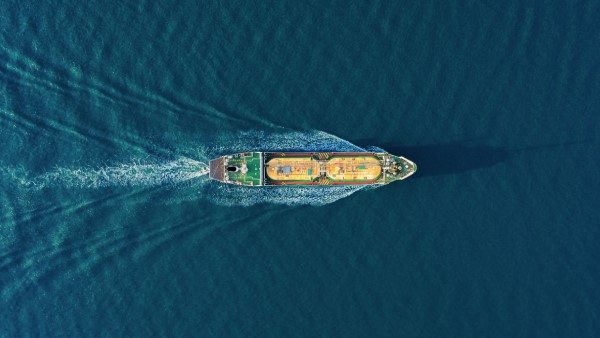Switching to ammonia as a marine fuel could create new problems, according to a new study undertaken by researchers from Chalmers University of Technology in Sweden.
The researchers carried out life cycle analyses for batteries and for three electro-fuels (hydrogen, methanol and ammonia). Eutrophication and acidification are some of the environmental problems that can be traced to the use of ammonia – as well as emissions of laughing gas (N2O), which is a very potent greenhouse gas.
Ammonia (NH3) is a carbon-free fuel and has the advantage of a higher energy density than, for example, hydrogen. It can also be liquefied fairly easily although it is a gas at standard conditions.
However, a significant disadvantage is that the production of electro-ammonia – which requires electricity – is very energy intensive. The study shows that all three green electro-fuels have a higher environmental impact than traditional fuels in terms of human toxicity, use of resources such as minerals and metals, and water use.
The researchers used life cycle assessment and life cycle cost to evaluate technical viability, environmental impacts, and economic feasibility of electricity via batteries and the three electro-fuels. The energy carriers were in turn used in combination with both engines and fuel cells.
The study shows that ammonia and methanol have the lowest cost of the alternatives studied.
Ammonia comes with a set of environmental disadvantages, he said. Its use as a fuel can affect air and water quality due to ammonia leakage and emissions of nitrogen oxides such as N2O. This is particularly important in sensitive marine area such as the Baltic Sea.
The study also showed that it is very difficult to find a simple non-fossil fuel solution that both works for all types of ships and is able to meet the goal of reducing greenhouse gas emissions in shipping.
Tags: Ammoina, Eutrophication, Marine Fuel, N2O, NH3



Recent Posts
Port of Brisbane Unveils Vision 2060 to Drive Smarter, Cleaner, and More Connected Future
Wärtsilä to Deliver Hybrid Propulsion Systems for Vertom Group’s New Low-Emission Vessels
Latvian port receives electric Konecranes Gottwald Mobile Harbor Crane
Sustainable Ocean Economy Vital for Human Development, Says UNDP at UN Ocean Conference
Green Hydrogen Costs in India Could Drop by 40%, Says IEEFA-JMK Report
Cavotec Secures €1.55 Million Shore Power Contract for Port of Antwerp-Bruges
APM Terminals and SANY Marine sign landmark agreement to accelerate decarbonisation
The Port of Gothenburg takes big step towards shore power connection for container and car/RoRo vessels